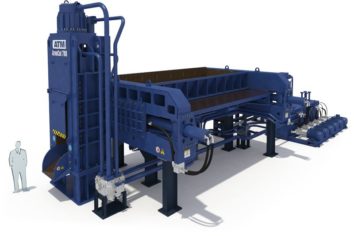Handels: A Comprehensive Overview of Trade and its Historical Evolution

Introduction:
Handels, also known as trade, is a fundamental concept that drives economic growth and provides individuals and businesses with access to desired goods and services. Understanding the intricacies of trade is essential for anyone interested in this subject. In this article, we will delve into the various aspects of handels, including its definition, significance, and historical evolution.
What is Handels?

Handels refers to the exchange of goods and services between individuals, businesses, or countries. It involves the buying, selling, and distribution of products, creating a dynamic network that connects consumers and producers across the globe. Trade not only satisfies individual needs but also plays a crucial role in driving economic growth, promoting global cooperation, and fostering cultural exchange.
Significance of Handels:
Handels brings numerous benefits to participants involved, whether they are individuals, businesses, or even countries. Some significant aspects of handels include:
1. Economic Growt Trade is a catalyst for economic development, creating job opportunities, stimulating investment, and increasing productivity. It encourages specialization, as countries can focus on producing goods and services in which they have a comparative advantage, leading to increased efficiency and overall prosperity.
2. Access to Variety: Handels allows individuals and businesses to access a wide range of goods and services that may not be available locally. This enhances consumer choice and satisfaction while enabling businesses to source materials and inputs globally, leading to cost savings and improved competitiveness.
3. Global Cooperation: Trade fosters cooperation among nations. Through handels, countries establish economic ties and develop interdependencies, leading to peace, stability, and mutual understanding. It promotes diplomacy and reduces the likelihood of conflicts, as nations are incentivized to maintain positive trade relationships.
4. Technological Advancement: Handels encourages innovation and technological advancement. Competition and access to new markets drive businesses to improve their products and processes. This leads to the development of new technologies and improved efficiency, benefiting society as a whole.
Historical Evolution of Handels:
For centuries, handels has played a central role in human civilization. Its evolution can be traced back to ancient times when bartering was the primary method of trade. Over the years, handels has undergone significant transformations, marked by key milestones:
1. Barter Trade: In early civilizations, people relied on bartering, exchanging goods and services directly without the use of money. This method facilitated the fulfillment of basic needs but had limitations due to the lack of a standardized medium of exchange.
2. Emergence of Currency: The introduction of standardized currency, such as coins, marked a crucial shift in trade. Monetary systems enabled individuals to trade more efficiently, facilitating economic growth and the expansion of trade networks.
3. Silk Road: During the ancient and medieval periods, the Silk Road emerged as a vital trade route connecting Europe and Asia. This extensive network facilitated the exchange of goods, ideas, and cultures between East and West, boosting global trade and cultural diffusion.
4. Age of Exploration: The Age of Exploration in the 15th and 16th centuries opened up new trade routes, linking distant continents. Explorers like Christopher Columbus and Vasco da Gama expanded trade horizons, leading to the establishment of global trading networks.
5. Industrial Revolution and Globalization: The Industrial Revolution in the 18th and 19th centuries revolutionized trade through advancements in transportation, communication, and manufacturing technologies. As globalization took hold in the 20th century, trade flourished, connecting countries across continents and enabling the growth of multinational corporations.
Conclusion:
Handels is a complex and fascinating concept that has shaped societies and economies throughout history. Understanding its significance, both at individual and global levels, is crucial for anyone interested in economics, business, or international relations. As trade continues to evolve, driven by technological advancements and ever-changing global dynamics, its impact on the world will undoubtedly remain a central factor in shaping our future.
FAQ
How has trade evolved over time?
What are the benefits of trade?
What is trade?
Flere Nyheder
Container tilter: Effektiv håndtering af affaldsmaterialer
Introduction: Handels, also known as trade, is a fundamental concept that drives economic growth and provides individuals and businesses with access to desired goods and services. Understanding the intricacies of trade is essential for anyone interes...
06 april 2025
ITIL 4 certificering: En guide til dine karrieremæssige fremskridt
Introduction: Handels, also known as trade, is a fundamental concept that drives economic growth and provides individuals and businesses with access to desired goods and services. Understanding the intricacies of trade is essential for anyone interes...
04 marts 2025
Kirurgisk laser: Et revolutionerende værktøj i moderne kirurgi
Introduction: Handels, also known as trade, is a fundamental concept that drives economic growth and provides individuals and businesses with access to desired goods and services. Understanding the intricacies of trade is essential for anyone interes...
03 marts 2025
Malerservice til erhverv: en essentiel del af virksomhedens image
Introduction: Handels, also known as trade, is a fundamental concept that drives economic growth and provides individuals and businesses with access to desired goods and services. Understanding the intricacies of trade is essential for anyone interes...
10 januar 2025











